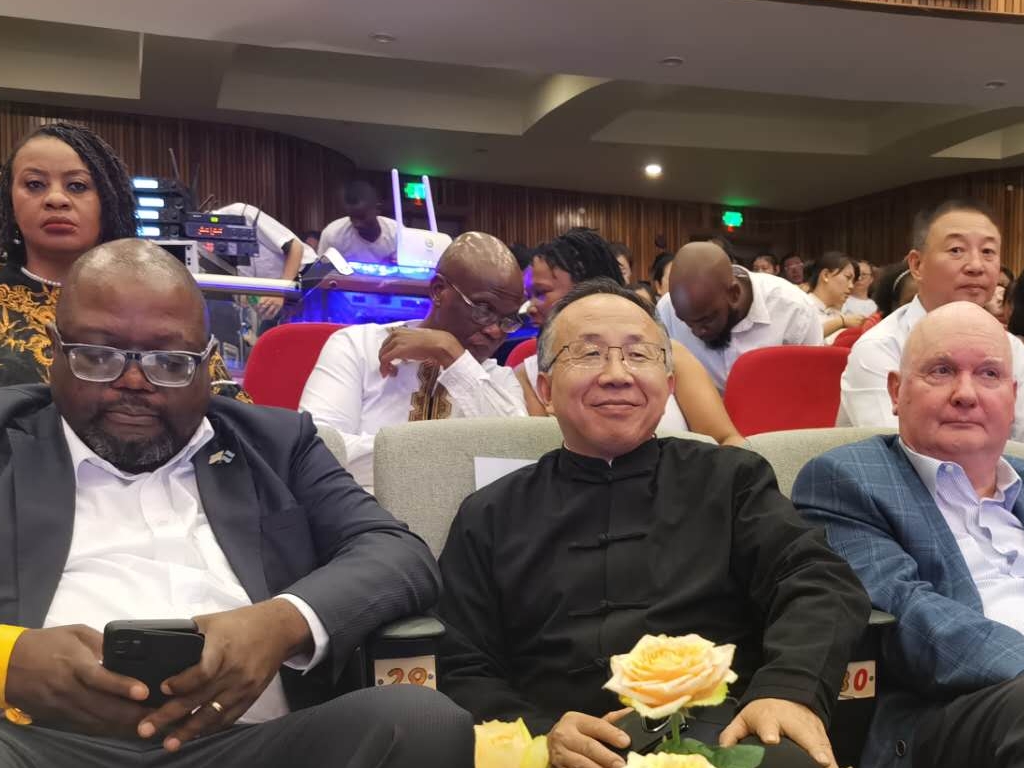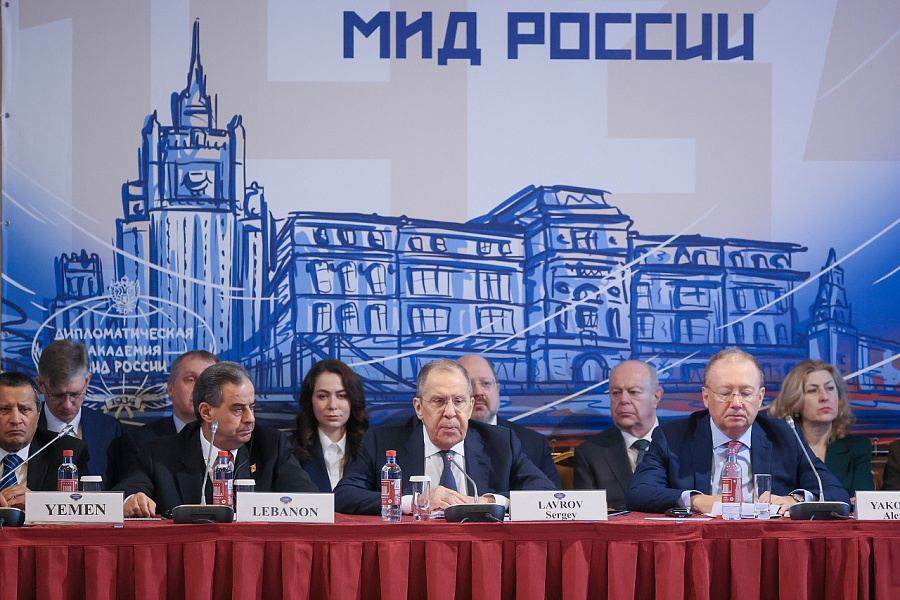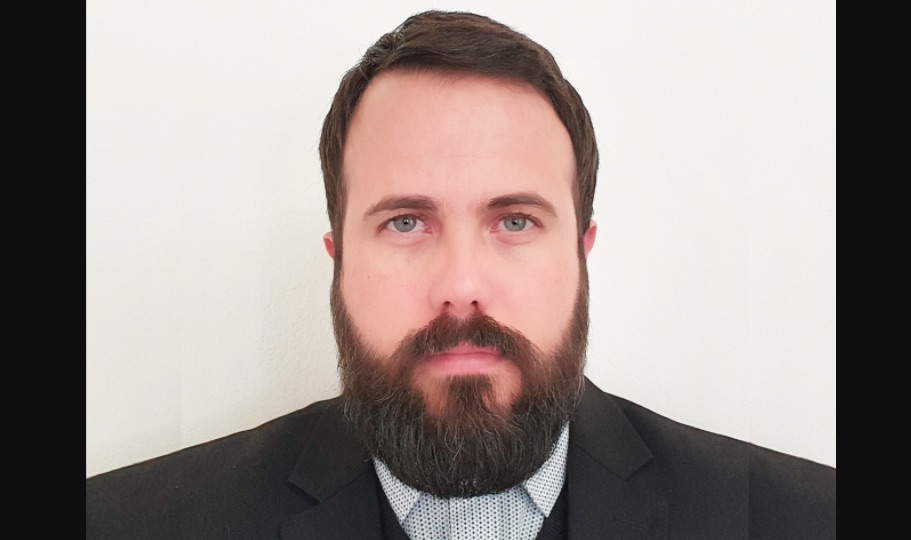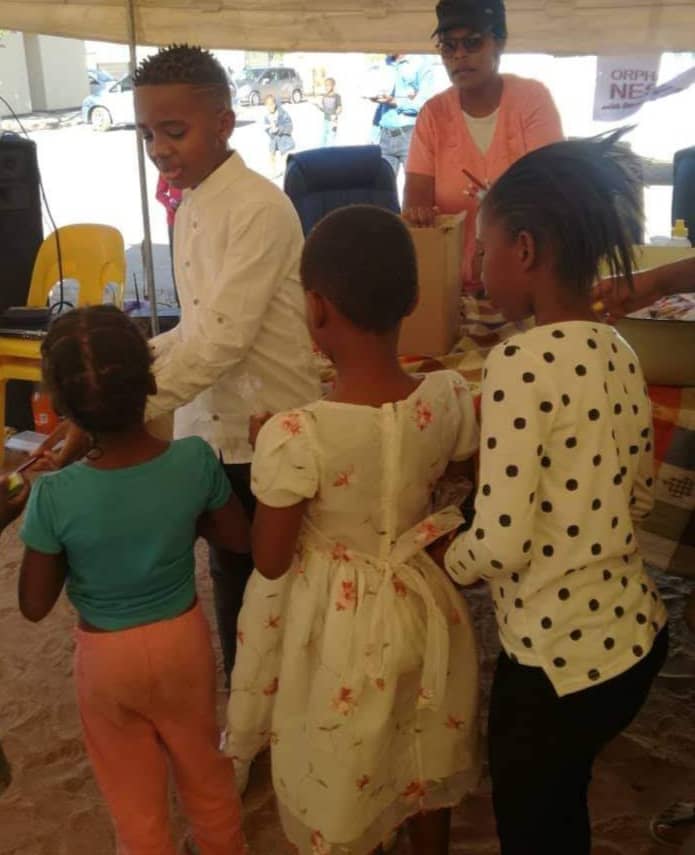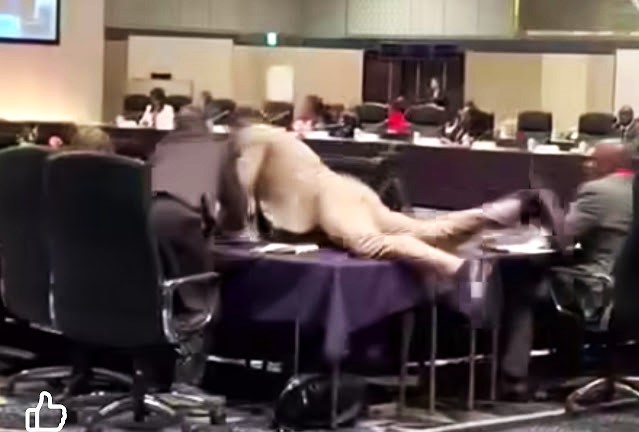
In a disgraceful episode for Moroccan diplomacy, the Tokyo International Conference on African Development (TICAD) on August 23, 2024, witnessed an unprecedented display of aggression when Moroccan officials launched a violent attack on the delegation of the Sahrawi Arab Democratic Republic (SADR). This brazen attempt to physically remove the Sahrawi representatives from the conference hall has ignited widespread condemnation and drawn renewed attention to Morocco’s thuggist tactics to suppress international recognition of Western Sahara’s right to self-determination.
The incident erupted moments after the SADR Ambassador Lamine Baali took his seat at the preparatory session, placing the nameplate of the SADR prominently before him. Morocco, which has long sought to block any form of diplomatic acknowledgment of the SADR, reacted with hostility, as a Moroccan diplomat charged towards Baali in a failed attempt to seize the nameplate and forcibly remove the Sahrawi delegation from the room. This reckless action by the Moroccan representative marked a dramatic escalation of the Western Sahara conflict on the global stage.
Despite Morocco’s aggressive efforts to delegitimize the Sahrawi presence, the participation of the SADR had already been secured through a diplomatic campaign spearheaded by key African Union (AU) member states. In the days leading up to TICAD, a coalition of different African nations threatened to boycott the summit unless the SADR was granted full participation. These countries unequivocally asserted that without the inclusion of the SADR, TICAD could not credibly be presented as a joint Japan-AU partnership, but rather as a bilateral Japan-Africa summit, similar to other international forums such as the U.S.-Africa and China-Africa summits.

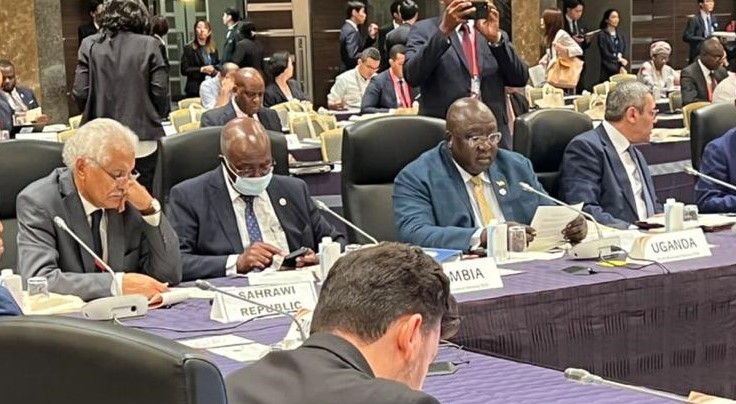
In response to mounting pressure from this coalition, Japan, as co-host of the conference, affirmed the SADR’s official invitation, much to Morocco’s dismay. When the SADR’s nameplate was initially missing from the table, several allied delegations withdrew in protest. Intense negotiations between AU protocol officers and Japanese organizers ensued outside the meeting hall, ultimately leading to the reinstatement of the SADR’s nameplate. This development enabled Ambassador Baali to return to his seat, signaling a victory for Sahrawi diplomacy amid Moroccan attempts to undermine their participation.
The Moroccan delegation, clearly enraged by this turn of events, resorted to violence in a disgraceful spectacle that has reverberated throughout the international community. Security personnel were forced to intervene as the Moroccan official physically charged at the Sahrawi representative. The lead Moroccan diplomat responsible for instigating the confrontation was expelled from the conference hall, allowing the session to continue without further disruption. Mauritania’s representative, who also serves as the current chair of the AU, took the floor to issue a formal apology to the SADR, reaffirming the Republic’s right to participate in the conference on an equal footing with all other participants.
This violent outburst by the Moroccan delegation has prompted swift and widespread condemnation from international observers and African leaders alike. The footage of the altercation, which captured diplomats shouting to the Moroccan Ambassador “Ayb alik” (meaning “Shame on you!”), has circulated widely on social media, further tarnishing Morocco’s image on the global stage. This latest debacle underscores Morocco’s increasingly isolated position regarding Western Sahara and highlights its diminishing capacity to constructively engage in diplomatic forums.
The clash in Tokyo has brought into sharp focus Morocco’s longstanding campaign to deny the Sahrawi people their right to self-determination, as enshrined in international law. For decades, Morocco has sought to suppress the Sahrawi cause, resorting to both diplomatic maneuvering and aggressive tactics to maintain its claim over Western Sahara. However, the SADR, a full member of the AU since 1982, continues to garner international support in its quest for independence. The Sahrawi Republic’s presence at TICAD, despite Morocco’s best efforts to prevent it, is a testament to the resilience of the Sahrawi people and their allies.
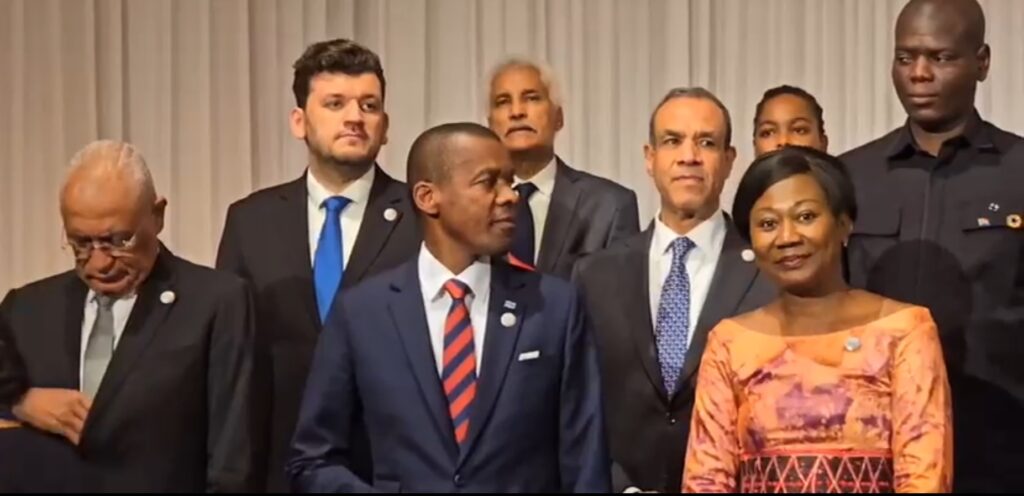
Noting that the recent incident follows a pattern of diplomatic overreach by Morocco, which has repeatedly sought to present its failures as diplomatic victories. During the Executive Council meeting of AU foreign ministers in July, Moroccan media outlets falsely claimed that the AU had adopted decisions to exclude the Sahrawi Republic from partnership meetings. However, these fabrications were quickly debunked, further revealing Morocco’s increasingly strained diplomatic credibility.
Throughout the lead-up to the TICAD conference in Tokyo, Morocco intensified its efforts, attempting to persuade its African allies and the host nation to adopt its stance on the Sahrawi issue. Yet, all of these maneuvers fell flat, culminating in a humiliating defeat for Morocco. In fact, the Sahrawi Minister of Foreign Affairs participated in the Ministerial Session of the conference on the 24th-25th August with full diplomatic authority, even receiving personal protection from the host country—contradicting Morocco’s narrative that stated that SADR was not invited and could not attend on its own.
This outcome marks a significant blow to Morocco, which has found itself at an impasse as its coercive tactics continue to fail. The diplomatic support and security extended to the Sahrawi delegation by Japan, despite Morocco’s claims, signify not only Morocco’s failure but also the growing frustration of the international community with Morocco’s increasingly belligerent approach.
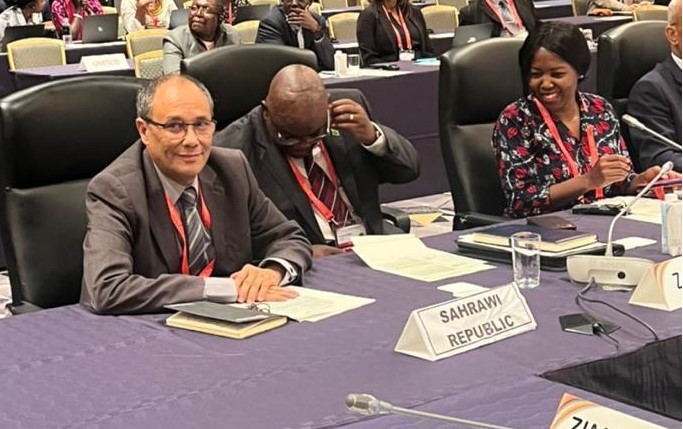
Decolonization and Self-Determination: The Ongoing Struggle for Western Sahara’s Independence and the Moroccan Obstruction
The conflict over Western Sahara is rooted in the process of decolonization, a cause upheld by United Nations General Assembly Resolution 1514, adopted in December 1960, which mandates the immediate and unconditional end of colonialism in all its forms. This resolution asserts the right of all peoples to self-determination, a right that remains at the core of the Western Sahara issue.
Since 1963, Western Sahara has been listed as a non-self-governing territory by the United Nations, a status that places the territory under the purview of the UN’s Fourth Committee, also known as the Committee on Decolonization. This body is charged with protecting the rights of the inhabitants of such territories and facilitating their path to self-determination. The conflict over Western Sahara is, therefore, a question of international law and the enforcement of decolonization mandates.
The UN, African Union, and European Union have all consistently supported a referendum to determine the future status of Western Sahara. This referendum, initially planned as part of the 1991 ceasefire agreement between Morocco and the Polisario Front—the representative body of the Sahrawi people—has been persistently obstructed by Morocco. Despite the establishment of the UN Mission for the Referendum in Western Sahara (MINURSO), the referendum has yet to be organized, largely due to Moroccan obstructions.
In November 2020, the Polisario Front announced the resumption of armed struggle against Moroccan occupation forces following a breach of the 1991 ceasefire by Moroccan troops in the El Guerguerat buffer zone. This renewed conflict has further intensified the urgency of resolving the Western Sahara issue through a fair and transparent referendum, as envisioned by international legal frameworks.
Morocco’s so-called “Autonomy Plan,” which seeks to grant limited self-rule to the Sahrawi people under Moroccan sovereignty, has been firmly rejected by the Polisario Front and the broader Sahrawi population. This proposal, backed by Morocco’s key allies, such as France, is seen as a violation of the Sahrawi people’s right to full independence. Spain, as the former colonial power and recognized by the UN as the administering authority over Western Sahara, has also faced criticism for its failure to uphold its responsibilities in ensuring a just resolution to the conflict.
The events at TICAD underscore the broader geopolitical struggle over Western Sahara and the lengths to which Morocco is willing to go to obstruct the SADR’s quest for self-determination. However, as demonstrated in Tokyo, the Sahrawi cause continues to gain traction on the international stage, with increasing support from African nations and beyond. Morocco’s aggressive tactics, rather than suppressing the Sahrawi movement, have only served to further isolate Rabat diplomatically and intensify calls for the full decolonization of Western Sahara.
As the struggle for Western Sahara’s independence enters a new phase, the international community must reaffirm its commitment to the principles of decolonization and self-determination. The Sahrawi people’s right to decide their own future cannot be denied, and it is incumbent upon global leaders to ensure that the long-promised referendum is finally held.






